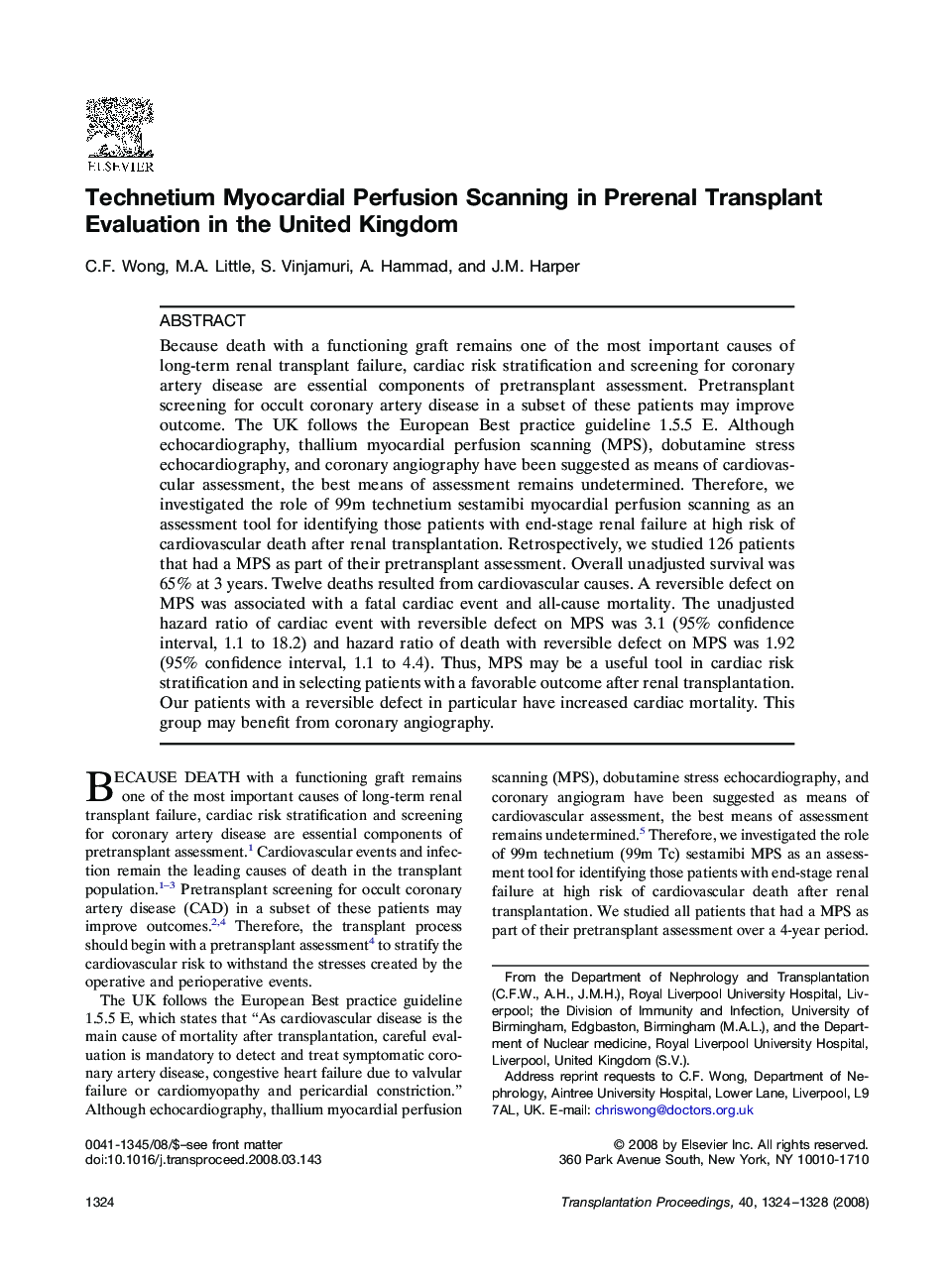| Article ID | Journal | Published Year | Pages | File Type |
|---|---|---|---|---|
| 4258208 | Transplantation Proceedings | 2008 | 5 Pages |
Because death with a functioning graft remains one of the most important causes of long-term renal transplant failure, cardiac risk stratification and screening for coronary artery disease are essential components of pretransplant assessment. Pretransplant screening for occult coronary artery disease in a subset of these patients may improve outcome. The UK follows the European Best practice guideline 1.5.5 E. Although echocardiography, thallium myocardial perfusion scanning (MPS), dobutamine stress echocardiography, and coronary angiography have been suggested as means of cardiovascular assessment, the best means of assessment remains undetermined. Therefore, we investigated the role of 99m technetium sestamibi myocardial perfusion scanning as an assessment tool for identifying those patients with end-stage renal failure at high risk of cardiovascular death after renal transplantation. Retrospectively, we studied 126 patients that had a MPS as part of their pretransplant assessment. Overall unadjusted survival was 65% at 3 years. Twelve deaths resulted from cardiovascular causes. A reversible defect on MPS was associated with a fatal cardiac event and all-cause mortality. The unadjusted hazard ratio of cardiac event with reversible defect on MPS was 3.1 (95% confidence interval, 1.1 to 18.2) and hazard ratio of death with reversible defect on MPS was 1.92 (95% confidence interval, 1.1 to 4.4). Thus, MPS may be a useful tool in cardiac risk stratification and in selecting patients with a favorable outcome after renal transplantation. Our patients with a reversible defect in particular have increased cardiac mortality. This group may benefit from coronary angiography.
